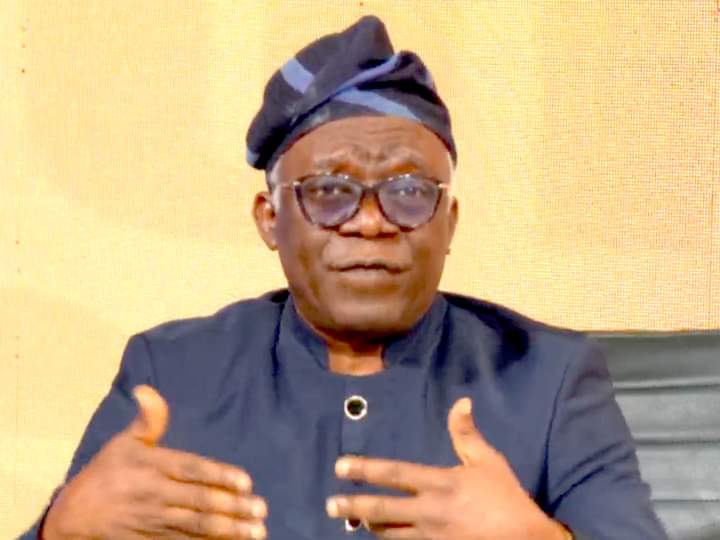Renowned Nigerian lawyer and human rights activist, San Femi Falana, has called on the Nigerian government to consider joining the BRICS group of emerging economies, reject policies imposed by the International Monetary Fund (IMF) and World Bank, and adopt a strategy of selling crude oil in the local currency, the Naira. Falana made these assertions during interview with Channel TV yesterday, where he outlined his vision for Nigeria’s economic independence and sustainable development, as gathered by The Spectacles.
In a bold move aimed at reshaping Nigeria’s economic trajectory, San Femi Falana, a prominent legal figure, has advocated for a series of strategic measures to bolster the country’s financial autonomy and promote self-reliance. Falana articulated his proposals, emphasizing the urgent need for Nigeria to reassess its economic alliances and policies.
One of the key recommendations put forward by Falana is for Nigeria to seek membership in the BRICS coalition, comprised of Brazil, Russia, India, China, and South Africa. He argued that aligning with these emerging economic powerhouses would provide Nigeria with access to alternative sources of investment, technology transfer, and market opportunities, thereby reducing its dependence on traditional Western institutions.
Furthermore, Falana urged the Federal Government to assert its sovereignty by rejecting the influence of the IMF and World Bank, institutions he believes have often imposed austerity measures and structural reforms detrimental to Nigeria’s long-term development. Instead, he proposed a concerted effort to formulate indigenous economic policies that prioritize the welfare of Nigerian citizens and foster inclusive growth.
A particularly contentious aspect of Falana’s recommendations pertains to the sale of crude oil, Nigeria’s primary export commodity. In a departure from conventional practices, he advocated for the adoption of a policy whereby crude oil is traded exclusively in the national currency, the Naira. This, he argued, would insulate Nigeria from the volatility of international currency markets and afford the government greater control over its fiscal policies.
While acknowledging the challenges associated with implementing such reforms, Falana expressed confidence in Nigeria’s ability to chart a new course towards economic prosperity and self-determination. He called upon policymakers, civil society organizations, and the general populace to rally behind these initiatives and contribute to the realization of Nigeria’s full potential on the global stage.
In response to Falana’s proposals, reactions have been mixed, with some applauding his visionary approach to addressing Nigeria’s economic challenges, while others cautioning against the potential risks and complexities involved in pursuing such radical reforms. Nevertheless, Falana’s advocacy has sparked a national dialogue on the future direction of Nigeria’s economic policies, underscoring the need for innovative thinking and bold leadership in charting a path towards sustainable development.
As Nigeria grapples with the complexities of a rapidly evolving global economic landscape, the insights and recommendations put forth by voices like San Femi Falana serve as a catalyst for meaningful change and a catalyst for national progress. Whether these proposals will gain traction within government circles remains to be seen, but one thing is certain: the call for economic sovereignty and self-reliance has reverberated across Nigeria, igniting hope for a brighter and more prosperous future.
